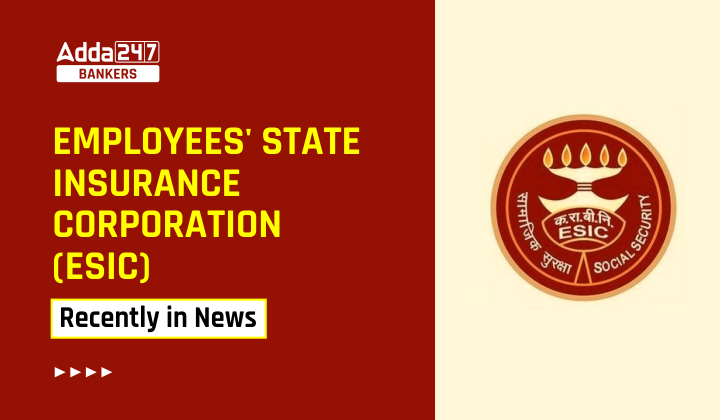Table of Contents
Recent in News:
Labour and Employment ministry-backed Employees’ State Insurance Corporation (ESIC) accorded approval for investments of surplus funds in equity, however, restricted to Exchanged Traded Funds (ETFs). The initial investment shall start at 5% and increase up to 15% gradually, after review of two quarters.
ESIC to upgrade and modernize its infrastructure under ‘Nirman Se Shakti’ initiative.
ESIC to set up new 100 bedded ESIC Hospital at Shyamlibazar, Agartala, Tripura and 100 bedded ESIC Hospital at Idukki, Kerala.
ESIC to increase the number of seats for Ward of Insured Persons at ESIC Nursing Colleges and also to start Ph.D., MDS, Nursing and Paramedical Courses from coming sessions.
What is the need of investment in Exchanged Traded Funds (ETFs)?
Due to the relatively low returns on debt instruments coupled with the need to diversify, the ESI Corporation accorded its approval for investments of surplus funds. The initial investment shall start at 5% and increase up to 15% gradually, after review of two quarters. The investment will be confined in Exchanged Traded Funds i.e., Nifty50 and Sensex. It will be managed by Fund Managers of AMCs. The equity investment will be monitored by existing Custodian, External Concurrent Auditor and Consultant looking after the debt investments in addition to the management of ETF for equity.
What is Employees’ State Insurance Scheme?
Employees’ State Insurance Scheme is an integrated measure of Social Insurance embodied in the Employees’ State Insurance Act and it is designed to accomplish the task of protecting ‘employees‘ as defined in the Employees’ State Insurance Act, 1948 against the impact of incidences of sickness, maternity, disablement and death due to employment injury and to provide medical care to insured persons and their families.
What is ESIC?
It is one of the social security providers of India and works under the Ministry of Labour. It was established in 1952. Its headquarters is in Delhi. It implements the ESI scheme across the country.
Who is the director general of ESIC?
Rajendra Kumar, IAS
Where ESI Scheme is applied?
The ESI Scheme applies to factories and other establishments viz. Road Transport, Hotels, Restaurants, Cinemas, Newspaper, Shops, and Educational/Medical Institutions wherein 10 or more persons are employed. However, in some States threshold limit for coverage of establishments is still 20.
ESI Corporation has extended the benefits of the ESI Scheme to the workers deployed on the construction sites located in the implemented areas under the ESI Scheme w.e.f. 1st August 2015.
What is the wage limit in ESI scheme?
Employees of the aforesaid categories of factories and establishments, drawing wages up to Rs.15,000/- a month, are entitled to social security cover under the ESI Act. ESI Corporation has also decided to enhance the wage ceiling for coverage of employees under the ESI Act from Rs.15,000/- to Rs.21,000/-.
How ESI Scheme is financed?
The ESI Scheme is financed by contributions from employers and employees. The rate of contribution by the employer is 4.75% of the wages payable to employees. The employees’ contribution is at the rate of 1.75% of the wages payable to an employee. Employees, earning less than Rs. 137/- a day as daily wages, are exempted from payment of their share of contribution.
When was ESI scheme inaugurated?
The scheme was inaugurated in Kanpur on 24th February 1952 (ESIC Day) by then Prime Minister Pandit Jawahar Lal Nehru.
It is important to mention here that it blossomed as the first social security scheme in 1944 when the Govt. of the day was still British. The first document on social insurance was the “Report on Health Insurance” submitted to the Tripartite Labour Conference, headed by Prof. B.P.Adarkar, an eminent scholar and visionary.
Other posts




 GA Capsule for SBI Clerk Mains 2025, Dow...
GA Capsule for SBI Clerk Mains 2025, Dow...
 The Hindu Review October 2022: Download ...
The Hindu Review October 2022: Download ...
 Seating Arrangement Questions for IBPS R...
Seating Arrangement Questions for IBPS R...





